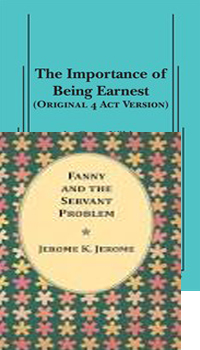
 |
 |
|
Dates and Venue March 4 – 6,and March 10 – 12 @ 7.30, March 13 @ 2.00, 2016 | Studio 1398, 1398 Cartwright St., Granville Island Directors Jenna Newton and Shelby Bushell Set Design Jacqueline Wax Costume Design Sarah Ghazi Lighting Design Vanka Salin Sound Design Ed Dawson and Sony Tsai Stage Manager Jesse Huang Reviewer Elizabeth Paterson |
||||||||||||||||||||||||||||||||||
|
The UBC Players Club is 100 years old this year and in celebration they are producing two new one-act plays. The first play, Home Fires Burning by Heidi Elric, takes as its jumping-off point the first three plays performed by the Players Club as well as inspiration from the life of one the founding members. Charles Duncan was a young student when he left to fight in the Great War, but in the play he has become a young man conscripted into the army, leaving at home a bronchial son with a factory job (Ernest, played by Matt Rhodes), and two daughters. Clare (Danika Enad) accepts the role of ‘keeping the home fires burning’ but the younger, Genie, played by Kimberly Hornaday, is passionately rebellious against such ‘duty’ She takes refuge in literature, specifically in 3 pieces their father has read to them, Fanny and the Servant Problem by Jerome K. Jerome (of Three Men in a Boat fame), Alice Sit-by-the-Fire by J.M. Barrie and The Importance of being Earnest by Oscar Wilde, all performed by the Players Club between 1916 and 1919. Genie is transported into the world of each play, where, cleverly, the characters know they are fictional and can, within the confines of their roles, speak for themselves and confide in Genie as girl friend to girl friend. Fanny must find a way to manage her family and still be herself, passionate Amy will defend her family to the utmost. Ultimately though it is Jack Worthing, that master of escapism, split between his respectable self in the country and his raffish alter ego in town who ultimately teaches Genie to how to bear her father’s death. There are a lot of things to like in this play from the author’s interest in history, and her sympathy with the lives and feelings of people living in other times, to her exploration of how literature can help, guide, transport and comfort us in our lives. Neatly directed by Jenna Newton, everyone in the enormous cast clearly put heart and soul into their performances. A restrained set marked by the living room fire at one end and a wishing well at the other kept the opposing tugs at Genie’s heart always in sight. In the second play, Divine Monster by Elena Kaufman, a modern young woman again learns from a character, in this case the real, if not entirely truthful, Sarah Bernhardt (Amelia Ross). This is a sophisticated two hander equally divided between Martha (Shona Struthers), a back-packing, Canadian, would-be musician at the end of her tether and the divine Sarah Bernhardt (Amelia Ross), now dead in Père Lachaise Cemetery but longing for life. The suicidal Martha looks like the answer to her prayers. Struthers depiction of a sulky, naive, unambitious 20-something was note-perfect from her movement to her facial expressions and resentful voice. She was matched by Amelia Ross’s chic, charming and ruthless Sarah. Despite its themes of suicide and betrayal, this is a darkly funny play. Where Martha has her eyes opened to the life of perhaps the most accomplished actor of the 19th century, Sarah Bernhardt discovers the I-pad, Face book and 21st century attitudes. She is unfazed. Some things the two women share, such as music and a lesbian lover; in others they are wildly different. The genuine hardships endured by Bernhardt make Martha’s problems insignificant and Sarah’s persistent courage in overcoming them ultimately heartens Martha. Martha though is honest and truly caring. She offers real friendship to Sarah Bernhardt who fundamentally only wants her death. A simple set featuring Sarah Bernhardt’s tomb and a park bench left an uncluttered playing area for these two fine actresses to explore under Shelby Bushell’s sensitive direction. New plays, each with a gift from the past, make a fine present for a 100th anniversary and promise an equally fine future. © 2016 Elizabeth Paterson |
||||||||||||||||||||||||||||||||||||
|
|
||||||||||||||||||||||||||||||||||||
|
|
||||||||||||||||||||||||||||||||||||